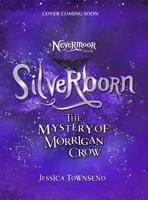Publisher's Synopsis
Beginning with the novel, WHAAM!, and the years, 1968 - 1970, fictional dramatis personae commence a journey through unstoppable time against the woven tapestry of unfolding political, cultural and social milieux, moving onward through Exiles (1971 - 1973), Siren (1974 - 1976), and Trash (1977 - 1979). The literary style is representative of the film-frame, each paragraph (quick-cutting decoupage) evoking a cinematic experience packed with concentrated imagery, visual and aural.Friezes continues the momentum of time as a penetrative arrow gathering up the cloud of probabilities which darkened the earlier sequence of novels, taking the dramatis personae through the years, 1980 - 1982, elucidating the mystery within cause-and-effect.Humanity are dramatis personae on-stage in the World's Theatre, actors backdropped by time's film-frames progressing moment-by-moment, wrestling with the meaning of being-and-existence, struggling to manifest a personal political, romantic and metaphysical identity. A frieze is a still-life, not free-standing, in-the-round, but inextricably bound to a larger plane, a fixture in a frame of spacetime.Friezes continues with the presentation of the powerful Japanese motif, the Enso (O), itself a two-dimensional image but viewed by the dramatis personae from a three-dimensional perspective. If two-dimensional images form analogous and symbolic toolboxes for our three-dimensional consciousness, surely it follows a human persona too is a toolbox, a thought-experiment for each four-dimensional Inner Thinker. Friezes explores this penetrative resonance, drawing upon the mirroring analogues of sculpture, painting and cinema in particular, to establish human incarnation as a complex but understandable palimpsest.






















